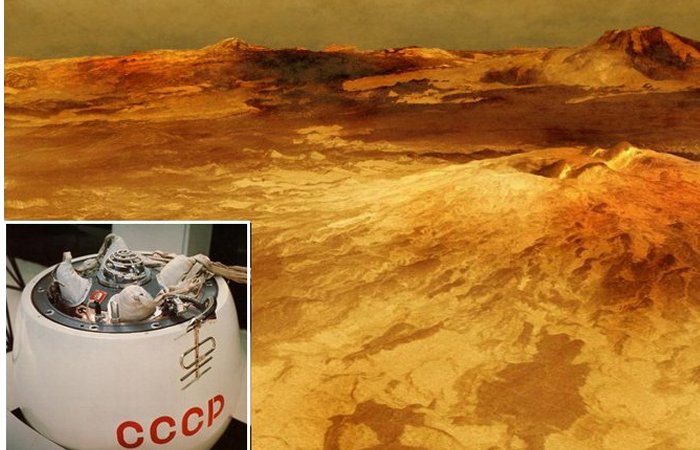On This Day In History: Soviet Spacecraft Venera 7 Launched: First To Send Data From Venus To Earth – On Aug 17, 1970
AncientPages.com - On August 17, 1970, Venera 7, a Soviet spacecraft, was launched from Earth as part of the Venera series of probes to Venus.
When it landed on the Venusian surface, it became the first spacecraft to land on another planet and the first to transmit data from there back to Earth.
The Venera 7 consisted of an interplanetary bus based on the 3MV system and a lander. It entered the atmosphere of Venus on December 15, 1970.
The lander remained attached to the interplanetary bus during the initial stages of atmospheric entry to allow the bus to cool the lander to -8 °C for as long as possible.
The lander was ejected once atmospheric buffeting broke the interplanetary bus's lock-on with Earth. The parachute opened at the height of 60 km, and atmospheric testing began with results showing the atmosphere to be 97% carbon dioxide.
The parachute appeared to fail during the descent, resulting in a descent more rapid than planned. As a result, the lander struck the surface of Venus at about 16.5 meters per second (54 ft/s).
The probe appeared silent on impact, but recording tapes kept rolling.
A few weeks later, reviewing the tapes, another 23 minutes of weak signals were found on them. The spacecraft had landed on Venus and probably bounced onto its side, leaving the medium gain antenna not aimed correctly for strong signal transmission to Earth.
The probe transmitted information to Earth for 53 minutes, which included 20 minutes from the surface. It was found that the temperature at the surface of Venus was 475 °C (887 °F) ° ± 20 ° C, and the pressure was 90 ± 15 atmospheres.
The probe provided information about the surface of Venus, which could not be seen through a thick veil of atmosphere.
AncientPages.com





















